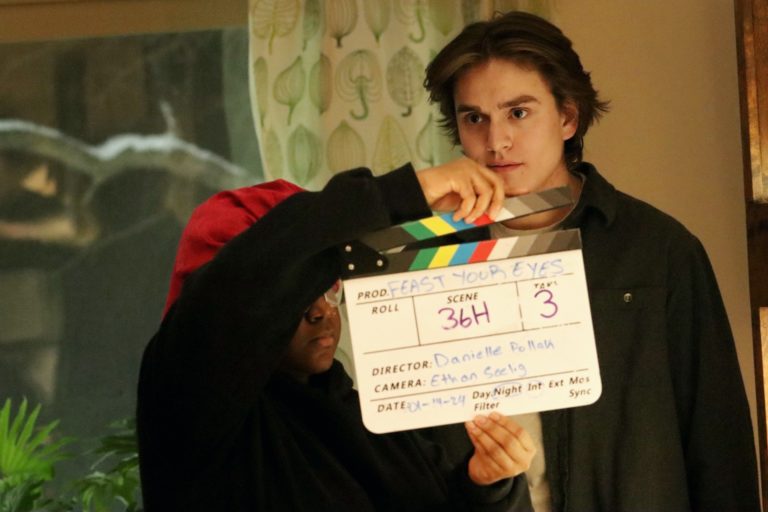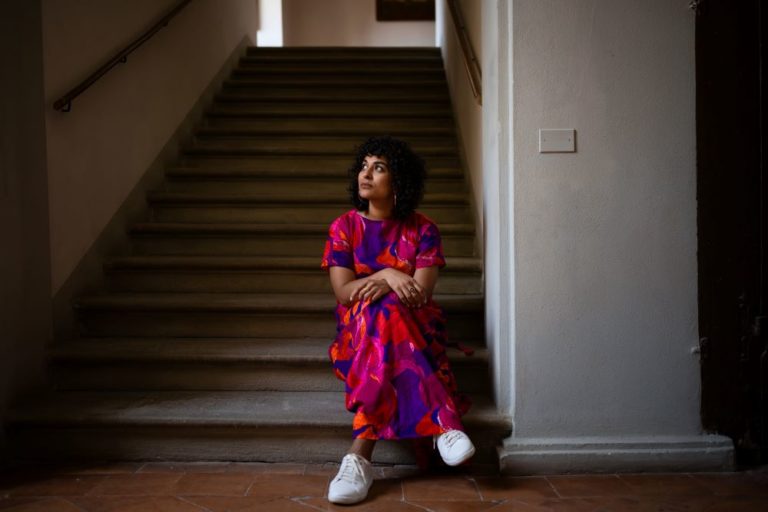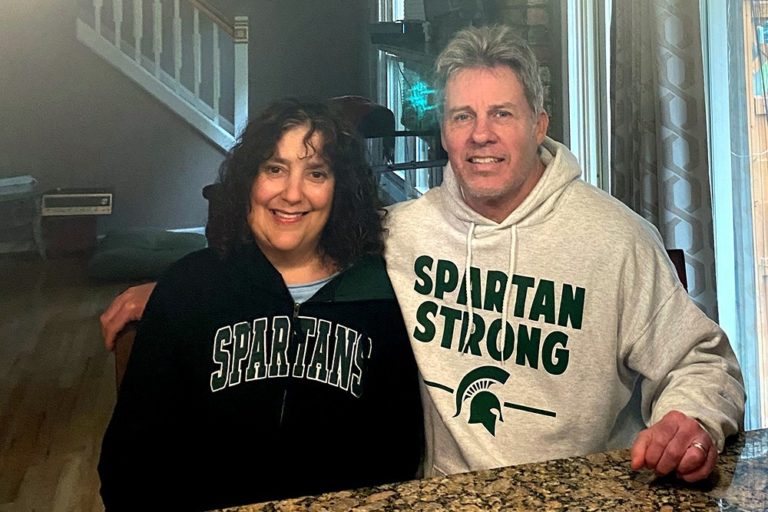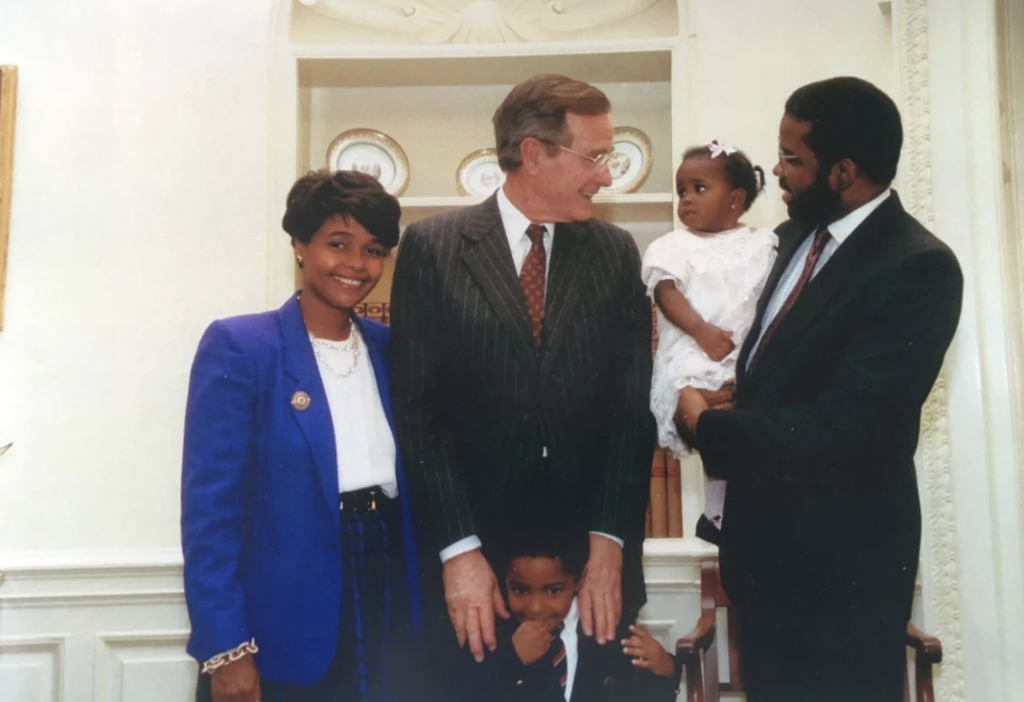
He was Vice President of the United States back then. My son was just under a year old. I’d introduced them for the first time during a staff picnic, in 1987, at the Vice Presidential Residence. Hot dogs, punch, and other picnic-type foods were the order of the day — fun, fatty foods that my little boy wasn’t accustomed to, but ate with great gusto.
Seconds later, during a “horsy” ride on the Vice President’s shoulders, my boy let loose. He threw up. That it happened to be all over the head of Vice President George H.W. Bush was immaterial.
“Remind me not to hold that kid again,” he said to me with a gentle smile, even in the midst of the mess. He might have been surprised by what had just happened, but he wasn’t angry. He had five kids of his own. He understood that children got sick. That’s how fathers are.
I was a young journalist who’d come to Washington fresh out of college (in 1982) to help launch USA Today. I’d been at the newspaper for five years when a close colleague who sat with me on the editorial board resigned to take a job at the White House. He somehow convinced me to “zip on over to the White House” for an interview — they were preparing to announce Bush’s bid for the presidency and needed to bulk up their communications staff — and before I knew it, I’d been offered a position in the Vice-Presidential Press Office. It was 1987.
From the moment I met him, Bush was affable and engaging; a mindful listener with a quick wit and a penchant for corny jokes. I worked for him during his vice presidency (as a Press Officer) and his presidency (as White House Director of Media Relations), and though so much of the world shifted and so many of the people around him changed, he remained constant.
My parents met him that same year, when he was still the Vice President. They’d flown in especially for the occasion (and to celebrate Christmas with their baby girl). Though my mother was quite ill at the time, it was important for her to make the trip.
As we stood outside the office of the Vice President of the United States that morning, waiting to be ushered in, my father had a few questions.
“What should we call him? Mr. Vice President? Mr. Bush? Sir?”
My mother sat quietly; she was conserving her energy. She’d remained on her oxygen for most of that morning just to have enough energy to walk unassisted down the long halls of the Old Executive Office Building.
My father was a little nervous, too, but far too cool to show it. The nervousness wasn’t necessary, of course. The moment we walked into his suite, the Vice President enveloped each of them into a bear hug as big as the sun. For a moment, I couldn’t even see my mother; she’d disappeared into his large embrace.
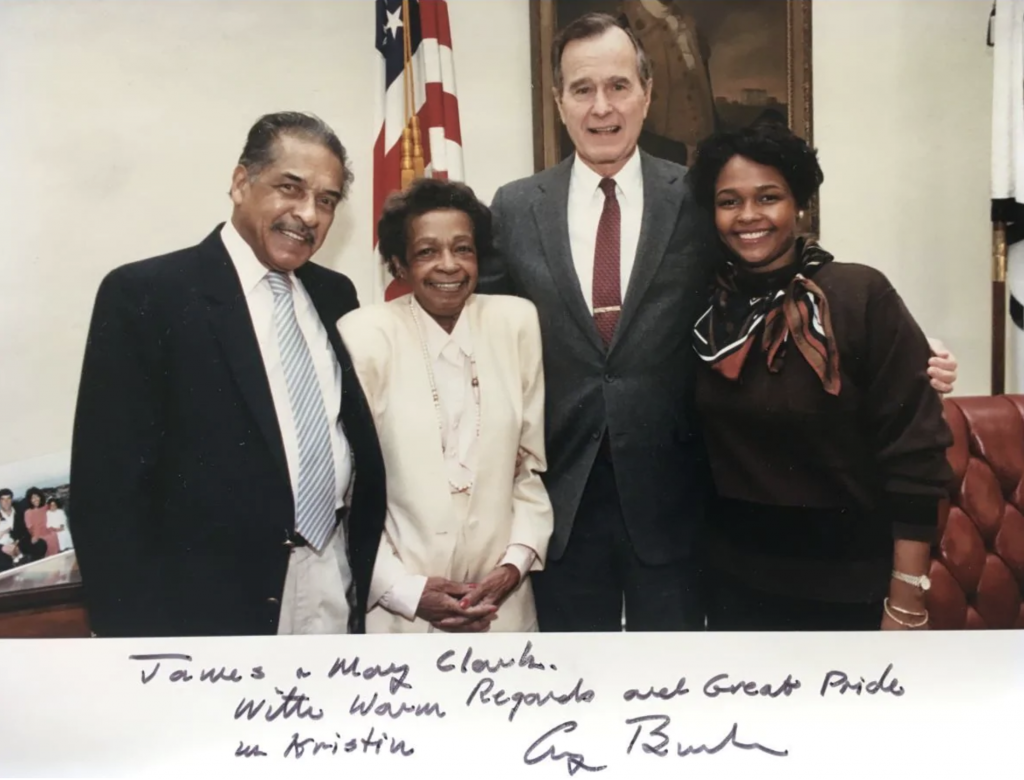
Mr. Bush was in fine form, too, showing my parents his family pictures and asking all about our family. He cut me a look when my parents told him I was the youngest of their seven children — wait, should I have told him that when we first met? — then joked easily with my parents that between the two families, we’d have enough for a basketball game.
Mother died several months after that visit, and my pain was paralyzing. I was in the middle of the worst firestorm of my life; a forest fire with flames so intense I just couldn’t catch my breath. It was during this dark time that my friendship with George H.W. Bush began; it sprouted through the parched earth and became a living thing. Without it, I might not have survived my own grief.
He sent a warm condolence note to my father — we read it aloud during my mother’s funeral — and he made a donation to the charity we’d set up in my mother’s name. In the months after her death, during a press briefing or a media interview, he’d study my face carefully, clearly worried by my grief because it fell so heavily over everything I touched. He sent me notes of comfort and even called me a few times, at home. He was my friend.
What he represented — what he and Mrs. Bush represented together — was an era. A way of being. A sense of caring, compassion, and human kindness that ran through them like a river and washed over everything and everyone they touched.
Shortly after my mother’s death, I became pregnant with my second child. Mr. Bush had been elected President by then, and the news of my pending arrival had made him very happy. He was ever the gentleman, too; in the latter stages of my pregnancy, he’d often rise from the chair behind his Oval Office desk to make sure I was comfortably seated. None of the other men in the room ever extended the same courtesy. Only him. When we walked from one part of the White House to another, he’d intentionally shorten his steps so that I could keep up. He didn’t make a big deal about it, but I could tell he was making the adjustment for me.
About a year later, we listened as my new daughter’s soft cries reverberated off the Oval Office walls. That they were rounded walls, I think, seemed to mute the sound. She wasn’t unruly; only a little tentative to meet this man with the wire-rim glasses and the big, warm smile. Somehow, he managed to get her to stop crying. (He’d already mollified my son with M&M’s.) All the tears, the fears, and the fidgeting had been washed away. He was a comforter.
This is how life stretches out; how it slips and slides so quickly we can barely feel it move: Years later, I’m in New York at the 2004 Republican National Convention with my family. Bush was there too, with his family. A Bush staffer called me at my hotel (I still don’t know how he knew where I was staying), to issue an invitation from the former President and First Lady for my daughter and me to come by their hotel for tea. His son was due to accept the Republican nomination that very evening but, still, he wanted to see us.
I remember sitting in their sunny hotel suite, watching as he and my daughter bantered easily.
The visit was brief but meaningful. He was just as sharp, just as engaging and active a listener as ever. Even though we were in their hotel suite, it felt like we were in their home, sitting in their living room or maybe even at their kitchen table.
As we were hugging goodbye, for some reason I still can’t explain, hot tears sprang to my eyes. Horrified, I tried blinking them back, thankful that they pooled but did not flow. What brought those tears on, I realize now, was the sudden, shocking realization that life marches on almost faster than you can live it. I also know that they were tears of pride. Of happiness. Of the certain comfort that comes from simply sitting with a good friend you hadn’t seen in a long time.
I last visited him in Houston, in 2015. He was wheelchair-bound but still filled with verve and vigor. We sat in his office and chatted.
He was wearing khakis, a light blue, V-neck sweater, and a bluish-grey sports jacket. On his feet, bright yellow socks: “See the Smiley faces on ‘em?” he asked proudly, lifting his pant leg a little higher so that I could inspect. His hair was longer than I’d ever seen it. He remained engaged and attentive, but after a while seemed slighted winded, which worried me. I’d never seen him winded.
What struck me, during that visit, was how much he remembered. What struck me, also, was how much I’d forgotten. We took a few photos and his energy level seemed to increase. I gave him a gift: A pair of socks — brightly colored blue and red striped socks — and a tiny teddy bear dressed as a skydiver (his love of dropping out of planes worried me deeply).
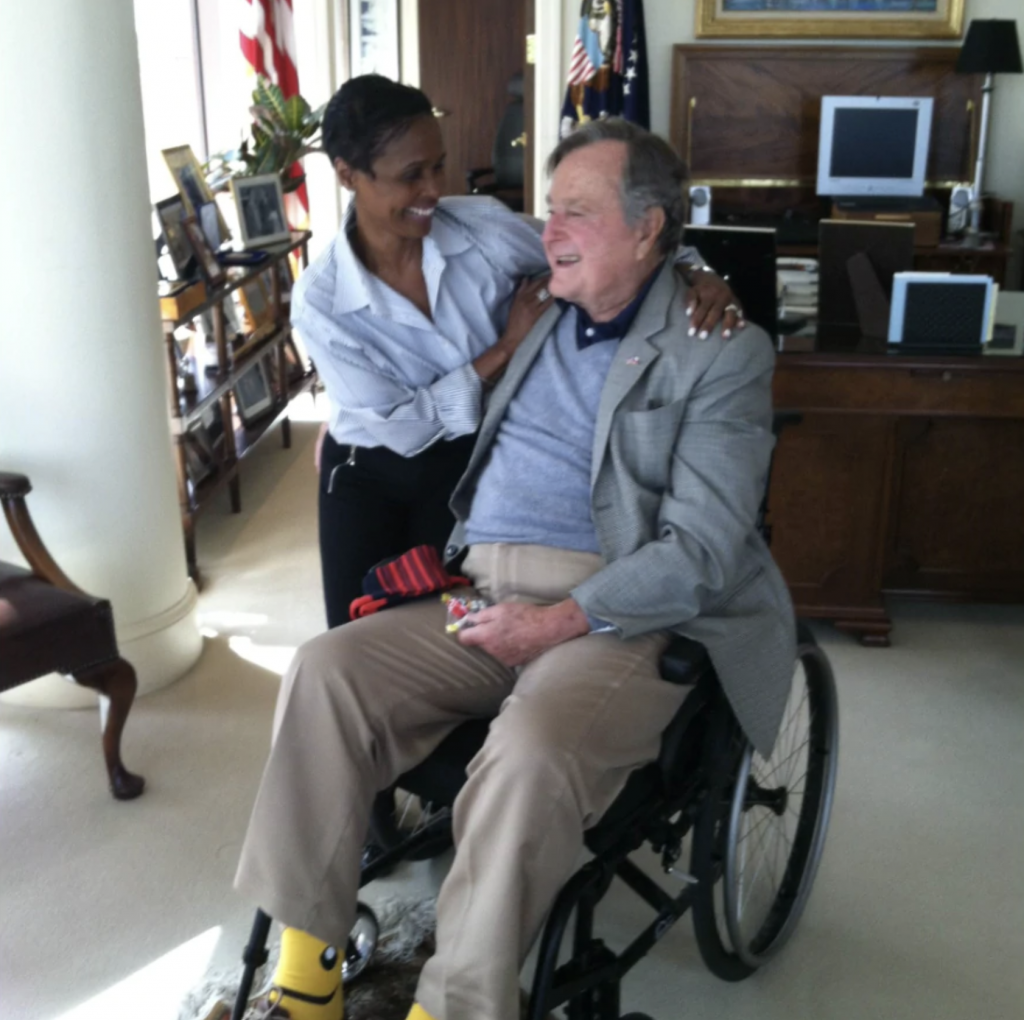
(Photo courtesy Kristin Taylor)
Before I left his office that day, the lump arrived in my throat and snatched my words. I pushed through, though, because I needed to — had to — thank him for being my friend. My mentor. For being a wonderful teacher and an exacting, expectant First Boss. I thanked him for helping me through the darkest period in my life, and for giving my parents those moments of great pride that day they first met him in the White House.
He accepted my gratitude with gratitude, and I think, a tiny bit of embarrassment. He might have been surprised at such an unexpected outpouring. I hadn’t planned on it, either, but I thank God that I did. It’s important that friends communicate openly, honestly. Say what you need to say, before it’s too late.
As I left his office that day, heading to Houston’s Hobby Airport for the plane ride back to D.C., I heard him holler out for me as I was halfway down the hall. I ran back.
“One more hug!” he said as I returned.
One more hug.
What makes my heart so heavy, as I say goodbye to my friend, is that I am also saying goodbye — all of us are saying goodbye — to an era.
My heart is heavy, yes, but my spirit is glad. My friend is gone and it makes me very sad. He and my father are the finest men I’ve ever known. But what he left — what they both left — is a legacy, to be kept alive by all of us.
That knowledge alone — that abiding sense of the collective responsibility that still remains — is enough to make me smile through my own tears, too. He was my friend, and now he is gone.
But a friendship such as this never really dies.
Kristin Clark Taylor, an author and freelance journalist, graduated from Michigan State University in 1982 with a B.A. in English. She served as Deputy Press Secretary to George H.W. Bush when he was Vice President and after his election to the presidency, as White House Director of Media Relations. She can be reached at WriterKristinTaylor@gmail.com.
Article originally published by Kristin Clark Taylor on The Washington Post.
